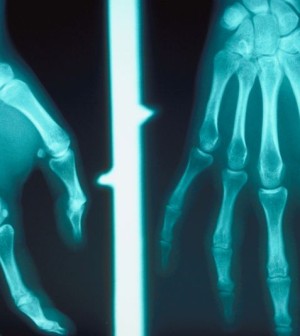- Recognizing the Signs of Hypothyroidism
- 10 Strategies to Overcome Insomnia
- Could Artificial Sweeteners Be Aging the Brain Faster?
- Techniques for Soothing Your Nervous System
- Does the Water in Your House Smell Funny? Here’s Why
- Can a Daily Dose of Apple Cider Vinegar Actually Aid Weight Loss?
- 6 Health Beverages That Can Actually Spike Your Blood Sugar
- Treatment Options for Social Anxiety Disorder
- Understanding the Connection Between Anxiety and Depression
- How Daily Prunes Can Influence Cholesterol and Inflammation
Maybe You Can Forecast Your Health Better Than a Doctor

How you rate your health could predict your risk of getting a cold, a new study suggests.
Psychologists from Carnegie Mellon University in Pittsburgh had 360 healthy adults between the ages of 18 and 55 complete a simple self-assessment. The results accurately predicted their susceptibility to the common cold.
The findings suggest it may be helpful for doctors to ask patients to rate their own health, according to the research team.
“Poor self-ratings of health have been found to predict poor health trajectories in older adults, including an increased risk for mortality,” said study leader Sheldon Cohen, a professor of psychology at the university.
Cohen said the link was significant even after accounting for the effects of objective indicators of health such as physical examinations, medical records and hospitalizations.
“We wanted to examine whether self-rated health predicted effective immune response in younger adults selected for their good health and whether this association was dependent on health practices and socioemotional factors,” he said in a university news release.
After completing the self-rating, the volunteers were exposed to a cold virus and monitored for five days. About one-third of them developed colds. Those who rated their health as fair, good or very good were more than two times as likely to develop a cold as those who rated their health as excellent. None of the participants rated their health as poor.
While the researchers only found an association, and not a cause-and-effect link, between self-rated health and risk of a cold or other infections, this association may be due to subtle sensations, feelings or symptoms that signal immune system problems, Cohen suggested.
“There are some things that we know about our bodies that aren’t easily detectable by our physicians,” he said.
The study was published in the November-December issue of the journal Psychosomatic Medicine.
More information
The American Academy of Family Physicians offers advice for maintaining your health.
Source: HealthDay
Copyright © 2026 HealthDay. All rights reserved.










